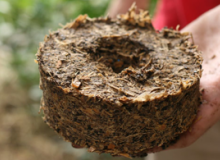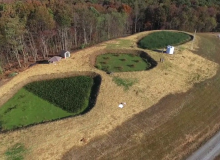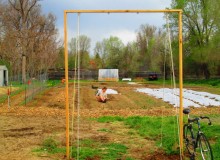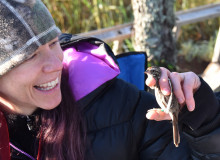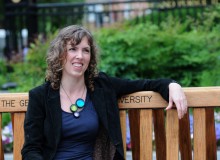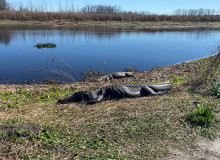Search
Friday, April 01, 2011
Last friday I attended the 2011 Open Minds exhibition at the National American History Museum. The exhibition featured inventive work from the best student teams across the nation.
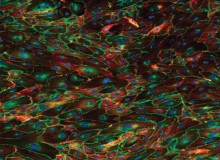
Human umbilical vein endothelial cells. (The Journal of Cell Biology/Flickr)
Northwestern University
Monday, February 27, 2017
Biological engineers are using stem cells to study the way cells interact and form unique structures on their own, hoping to one day utilize the biotechnology to create machine-like "hyper organs" and cell-based implants.
Tags: bioengineering, biomechanics, health innovation
Planet Forward Correspondent | Sewanee: The University of the South
Friday, March 09, 2018
Researchers from Sewanee and the University of Georgia test wetlands as a means to treat wastewater in the face of a water-scarce future.
Tags: Water, clean water, wastewater, water scarcity, Urban design, storyfest2018

Denver Nuggets mascot, Rocky, shows off Ball’s new aluminum cup, which launched at Denver's Pepsi Center this fall as a replacement for plastic cups. (Ball Corporation handout)
SUNY College at Brockport
Thursday, December 12, 2019
Ball Corporation takes on replacing the ubiquitous plastic cup at sports venues with aluminum, helping reduce waste and, at CU-Boulder, work toward their plastic-free goals.
Tags: plastic, aluminum, plastic waste, waste reduction, recycling, sports
GWU School of Media and Public Affairs
Monday, April 28, 2014
GW Distinguished Fellow Tara Sonenshine issues a call for global food diplomacy.
Planet Forward Senior Correspondent | American University
Friday, March 06, 2020
Understanding birds is the first step toward avian species conservation, and bird banding improves our knowledge of birds' migration patterns and life histories.
Tags: birds, bird banding, Biodiversity, research, conservation, Conservation Biology
George Washington University
Wednesday, February 12, 2014
Prof. Sabrina McCormick has lived the impacts of a contaminated environment and now she tells the stories of environmental disasters of the present and future.
Tags: household chemical contamination, climate adaptation, Hollywood, Entertainment, public health, GWU, SPHHS, deepwater horizon, BP oil spill
Planet Forward, George Washington University School of Media and Public Affairs
Monday, September 29, 2014
Bill Hohenstein
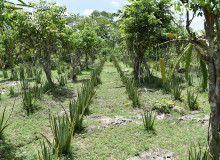
On a traditional milpa farm, rows of agave are interspersed with other crops: pitaya-bearing cacti and ramón trees. (Evan Barnard/University of Georgia)
Planet Forward Senior Correspondent | American University
Monday, September 16, 2019
Milpa is a type of sustainable farming historically practiced by the Maya in the Yucatán and other parts of Mesoamerica. The milpas, planted with numerous crops for local consumption, are facing challenges from climate change.
Tags: agriculture, traditional ecological knowledge, Mexico, crops, local farming, climate change adaptation, cultural preservation, storyfest2020
George Washington University
Friday, June 10, 2022
Patterns of U.S. land protection prioritize the great landscapes of the West over species richness or biodiversity, which are largely concentrated in the Southeast.

